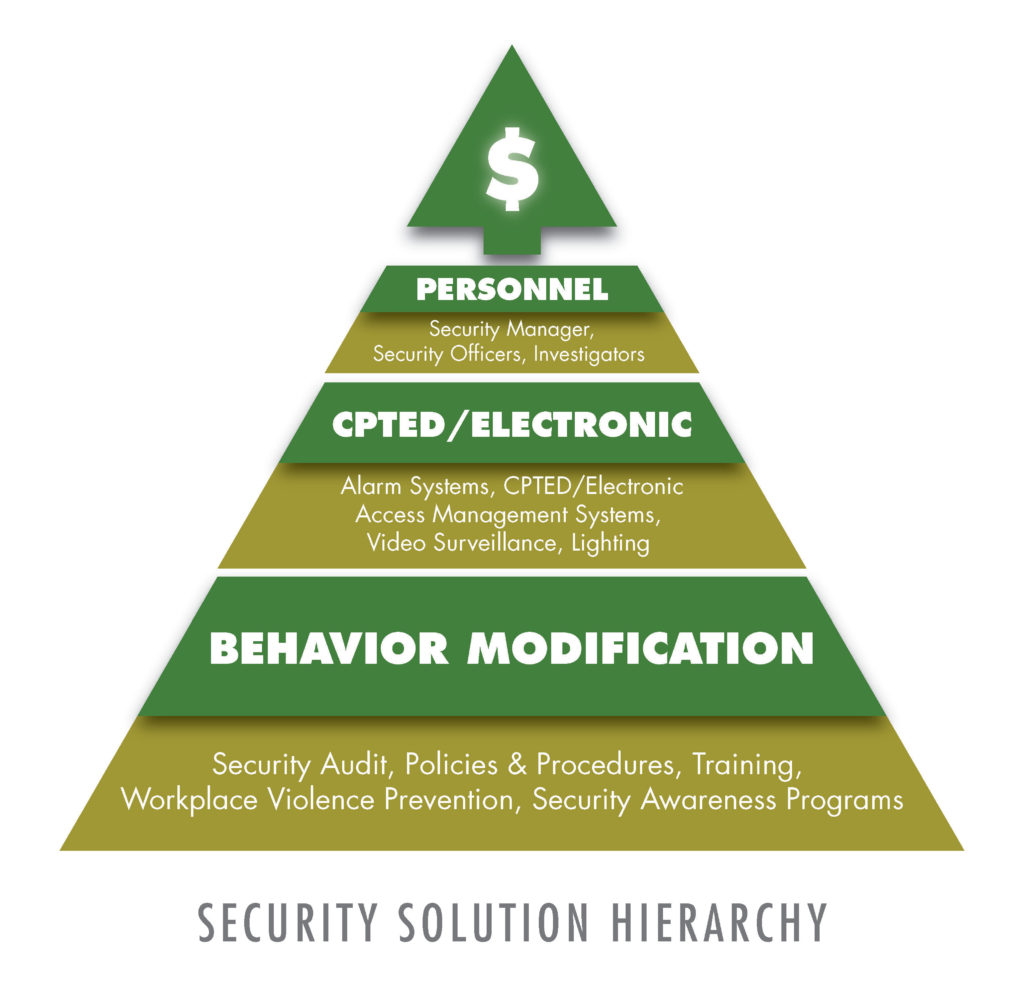Hospital Security Programs Play an Important Role During the Current Pandemic
During events, such as a pandemic, anxiety, driven by fear, may affect the rational behavior of all parties (staff, patients and visitors). It is during times such as these, that an experienced security team can play an important role. This scenario is may be further impacted by feelings of angst of the clinical team. Add this scenario is the need to reasonably control behavior, driven by fear. Security personnel are frequently the first and last employees, incoming and outgoing, that most patients will interact with. Security officers will often deal with feeling of fear, which may morph into feelings of aggression. This is one reason that security officers should have sensitivity training.
The time to prepare for extraordinary events, such as a pandemic, was yesterday. This statement is valid if one ascribes to the notion that security is an anticipatory discipline. Most hospitals, especially those hospitals that have a level one trauma center, prepare for major emergencies as a matter of course.
The key ensuring for that safety of all parties, may be in the hands of hospital security personnel. The perceptions of incoming patients and their families will be affected for years to come, both negative and positive. As we have stated in the past, security is a situational discipline. Security is also a discipline that must flex to deal with emerging needs.
A good communicator is first, and foremost, a good listener. Becoming an effective security officer, while under this level of stress, is not easy. Those security officers that have prepared these situations, will go home at the end of the with pride and feeling of accomplishment. The patients will win, the security staff will win, and the image of the hospital will also come out a winner. In all the years that I have been a security professional, I have that prevailing impressions of any hospital, for better or worse, is in the hand of the security team. Especially those security teams that go the extra mile with simple acts of kindness. Given the nature of a pandemic, containment
is a must. This need requires a situational, multivariate approach, driven by a unique set of ambient needs. Throughout the crisis management process, these needs may change to some degree. Under these circumstances, the security program may need to make corrective adjustments from time to time. Information sharing among hospitals should be shared among the risk management professionals.
Finally, setting the pandemic aside, hospitals will need continue to deal with the ambient crime environment. One of the best tools for that purpose is to attain periodic CrimeCast Reports from the CAP Index. The CAP Index provides an excellent relational database that will quantify the ambient threat environment.
Effective security programs, given the ambient threat environment, must continually adjust. Remember that security is a situational discipline. The recent Corona Virus epidemic is a clear example of why security programs must adjust. The threat environment is also in a constant state of change. As an example, the recent virus epidemic presents several unique security challenges, especially with the need to control access at several different levels. This control is applicable to both outer and inner space. The Security Solution Hierarchy provides a construct and a model for the prioritization of a range of security strategies. The hierarchy is not intended to imply that all levels must be executed. The determination of hoe much security is deemed adequate, depends on the security threat milieu.
In order to ensure the efficacy of every security problem, incident tracking and analysis is a must. Additionally, comprehensive security assessment should be conducted on a regular basis. It is important to bear in mind that security is an anticipatory discipline.
Going forward. All security assessments offered by SMSI, will include a preparedness review, as well as the development of security methodologies for the mitigation of crises before it is too late.

Effective security programs, develop the means, by which to manage the dynamic ambient threat environment, including the ability to continually adjust. Remember that security is a situational discipline. The recent Corona Virus epidemic is a clear example of why security programs must adjust. The threat environment is also in a constant state of change. As an example, the recent virus epidemic presents several unique security challenges, especially with the need to control access at several different levels. This control is applicable to both outer and inner space. The Security Solution Hierarchy provides a construct and a model for the prioritization of a range of security strategies. The hierarchy is not intended to imply that all levels must be executed. The determination of hoe much security is deemed adequate, depends on the security threat milieu. In order to ensure the efficacy of every security problem, incident tracking and analysis is a must. Additionally, comprehensive security assessment should be conducted on a regular basis. It is important to bear in mind that security is an anticipatory discipline.
By using the Security Solution Hierarchy, there is an assurance the security methodologies are need driven. The Security Solution Hierarchy provides a sequential model for almost any security program. Depending on the local threat environment, all levels of the Security Hierarchy may, or may not be required. That determination should made by applying the hierarchical model, from the bottom up.
Finally, you must know where you are coming from, prior moving ahead.
If you require more information, and or are considering a comprehensive security review, the tome to act is now. Unfortunately, SMSI has done numerous security reviews after-the fact. Most of these retentions were made in our role as court certified expert witnesses.
William H. Nesbitt, CPP, CPTED Certified & Drew Neckar, CPP, CPTED Certified
Website: www.smsiinc.com
Phone:805-241-3900
Email: Bill@smsiinc.com
